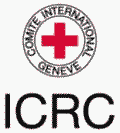 The top United Nations humanitarian official in the occupied Palestinian territory today joined aid agencies in calling for the immediate opening of Gaza's crossings to allow the entry of spare parts and materials critical to restoring the area's water and sanitation services.
The top United Nations humanitarian official in the occupied Palestinian territory today joined aid agencies in calling for the immediate opening of Gaza's crossings to allow the entry of spare parts and materials critical to restoring the area's water and sanitation services."The deterioration and breakdown of water and sanitation facilities in Gaza is compounding an already severe and protracted denial of human dignity in the Gaza Strip," Maxwell Gaylard said in a joint statement issued today with the NGO Association for International Development Agencies (AIDA).
"At the heart of this crisis is a steep decline in standards of living for the people of Gaza, characterized by erosion of livelihoods, destruction and degradation of basic infrastructure, and a marked downturn in the delivery and quality of vital services in health, water and sanitation," added Mr. Gaylard, the Deputy UN Special Coordinator for the Middle East Peace Process and UN Humanitarian Coordinator.
Israel's closure of Gaza's crossing points, imposed since June 2007, has meant that equipment and supplies needed for the construction, maintenance and operation of water and sanitation facilities have not been able to enter the area, leading to the deterioration of these services.
Currently, some 10,000 people do not have access to the water network, while another 60 per cent of Gaza's population of 1.5 million do not have continuous access to water.
In addition, some 50 to 80 million litres of untreated and partially treated waste-water have been discharged daily into the Mediterranean Sea since January 2008, due to damage to sewage treatment facilities, lack of treatment capacity because of postponed plant upgrade projects, and a critical shortage of fuel and electricity necessary to operate them.
Mr. Gaylard and the non-governmental organizations (NGOs) called on the Israeli Government to take immediate steps to ensure the entry into Gaza of the necessary construction and repair materials to respond to the water and sanitation crisis.
"Without addressing both the immediate basic needs of the population and facilitating the longer-term development and management of the degraded water and sanitation sector, public health and the wider environment will remain at significant risk," said the Humanitarian Coordinator.
"Pollution does not recognise borders or barriers, and communities throughout the region are threatened by the deficiencies of Gaza's water and sanitation system," he added.
________________



























